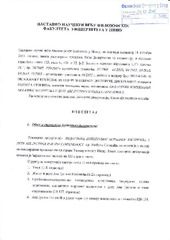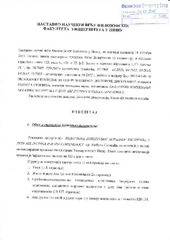Приказ основних података о дисертацији
Pedagoške koncepcije moralnog vaspitanja u delu Ave Justina i naša savremenost
| dc.contributor.advisor | Jevtić, Bisera | |
| dc.contributor.other | Mikanović, Brane | |
| dc.contributor.other | Bojović, Dragiša | |
| dc.contributor.other | Gorgiev, Branko | |
| dc.creator | Stošić, Ranđel | |
| dc.date.accessioned | 2016-07-23T16:21:06Z | |
| dc.date.available | 2016-07-23T16:21:06Z | |
| dc.date.available | 2020-07-03T16:18:08Z | |
| dc.date.issued | 2016-04-12 | |
| dc.identifier.uri | http://eteze.ni.ac.rs/application/showtheses?thesesId=3365 | |
| dc.identifier.uri | https://nardus.mpn.gov.rs/handle/123456789/6051 | |
| dc.identifier.uri | https://fedorani.ni.ac.rs/fedora/get/o:1105/bdef:Content/download | |
| dc.identifier.uri | http://vbs.rs/scripts/cobiss?command=DISPLAY&base=70052&RID=1545215231 | |
| dc.description.abstract | In contemporary living conditions characterised by frequent social changes, erosion of morality, crisis of moral system and moral orientations, the problematics of moral education is becoming increasingly important, if not the most important issue of today's era. Morality (ήθος), as a disposition of the will, helps a man to exit his narrow circle of egotism and care for himself only and to move into a broader circle of universal sympathy towards other people, towards the society and the social environment he lives in. Thus, morality is a sound disposition of the will manifested in external actions. The main content of moral education is comprised of the three following concepts: good, duty and virtue. These terms comprise the main content of moral education because they are the integral elements of an ideal form of life that morality aspires to realise. The task of moral education is directed to make an individual capable of and to get accustomed to working for general good; to get accustomed to attaching importance to general social tasks and being enthusiastic about them. With the development of human thought, various approaches to education have been developed and conceptions of education have evolved. Conception (concipere) is translated as understanding, comprehension; whereas, in pedagogy, a conception represents a fundamental idea on education. When speaking about the conceptions of education, the basic classifications of the concepts of education may be classified according to their starting point base, i.e. what the criteria for determining the aim are. For some, the starting point is child, for some other it is society, for the third ones it is hereditary basis, for the fourth ones these are values beyond an individual, for the fifth ones it is the ideal of God's sanctity, for the sixth ones it is the individual himself. Abba Justin does not see the pedagogical conceptions of moral education separately from the entire education and educational work, yet he sees them as an integral part of that work; vi whereby it contributes to a multi-faceted development of an individual's personality. Among many issues of moral education, the one that has been chosen is to search for pedagogical conceptions in the work of Abba Justin; thus, our endeavours shall be directed towards recognising the themes and ideas of Abba Justin that have become the fulcrum of the pedagogical conceptions of moral education. In the research, we have started from the assumption that pedagogical conceptions give meaning to moral education and acting, and organise them. Methodologically, this thesis consists of two fundamental procedures: On one hand, it endeavours to show pedagogical meaning and pedagogical implications of morality and moral education using a comprehensive pedagogical interpretation. On the other hand, Abba Justin Popović has quite concrete pedagogical texts that should be explained from the perspective of his mindset of pedagogy. The research's character is theoretical and a technical analysis attempt has been made. The basic methodological approach is hermeneutic. The method of theoretical analysis and synthesis has been used for studying the fundamental theoretical questions of pedagogical conceptions in moral education; whereas the comparative method has been used for a critical view on the substance and value of the old conceptions of moral education, with an aim to bring contemporary education conceptions to an objective link with the current pedagogical attainment and the spirit of the times. For the needs of this research, original literature has been consulted, mainly in pedagogy and theology, i.e. in various disciplines dealing with pedagogical conceptions of moral education. The ideas of Abba Justin Popović that religion and morality seek one another and need one another are highlighted in this paper. As a man cannot be truly religious unless being moral. Morality floats in the air without God. A moral man, but ungodly is mindless; an immoral man, but godly is a hypocrite. The more moral in thoughts and conduct a man is, the more sublime and holier notion of God he has; and the more love and awe he has towards God, the more moral he will be in his life and actions. vii The paper offers a new understanding on moral education as the basis for the development of comprehensive strengths of a personality. Moral education aims at relying on personal strengths of students, their self-development and subjectivity, on a spiritual dimension and care for affirmative moral life. Students' freedom, dialogue and imagination make the school a source of moral behaviour of students; as well as their long-term growing into and formation of a self-education, mature and moral personality. Justin's pedagogy widened much further the framework of the pedagogy of moral education as a science itself. It represents an understanding of the world that encompasses life of an individual at the top social circle with all the moral expressions and functions of the relation: individual – moral – society. The driving force of the pedagogy of Abba Justin Popović is not only a wish for learning, but the will for a sublime ethical form of life. Thus, the entire system of the pedagogy of Abba Justin Popović with all its phenomena and cognitive constructions represents a response to the old pedagogical thought. | en |
| dc.format | application/pdf | |
| dc.language | sr | |
| dc.publisher | Универзитет у Нишу, Филозофски факултет | sr |
| dc.rights | openAccess | en |
| dc.rights.uri | https://creativecommons.org/licenses/by-nc-nd/4.0/ | |
| dc.source | Универзитет у Нишу | sr |
| dc.subject | Ava Justin Popović | sr |
| dc.subject | Abba Justin Popović | en |
| dc.subject | morality | en |
| dc.subject | moral education | en |
| dc.subject | pedagogical conceptions | en |
| dc.subject | religion | en |
| dc.subject | moral | sr |
| dc.subject | moralno vaspitanje | sr |
| dc.subject | pedagoške koncepcije | sr |
| dc.subject | religija | sr |
| dc.title | Pedagoške koncepcije moralnog vaspitanja u delu Ave Justina i naša savremenost | sr |
| dc.type | doctoralThesis | en |
| dc.rights.license | BY-NC-ND | |
| dcterms.abstract | Јевтић, Бисера; Бојовић, Драгиша; Микановић, Бране; Горгиев, Бранко; Стошић, Ранђел; Педагошке концепције моралног васпитања у делу Aве Јустина и наша савременост; Педагошке концепције моралног васпитања у делу Aве Јустина и наша савременост; | |
| dc.identifier.fulltext | https://nardus.mpn.gov.rs/bitstream/id/55406/Disertacija3992.pdf | |
| dc.identifier.fulltext | https://nardus.mpn.gov.rs/bitstream/id/55407/Stosic_Randel.pdf | |
| dc.identifier.fulltext | http://nardus.mpn.gov.rs/bitstream/id/55406/Disertacija3992.pdf | |
| dc.identifier.fulltext | http://nardus.mpn.gov.rs/bitstream/id/55407/Stosic_Randel.pdf | |
| dc.identifier.rcub | https://hdl.handle.net/21.15107/rcub_nardus_6051 |



